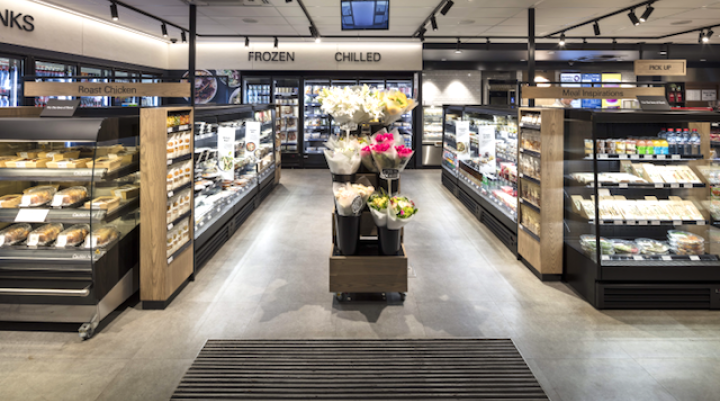Woolworths Holdings, the South Africa-based parent of David Jones, is exploring a very different direction for the David Jones Food business in a bid to stem the $15 million annual losses. Since March, David Jones has closed three of its food stores and in recent weeks, it announced that it was ending its partnership with convenience chain BP. Speaking on a conference call last week, Woolworths Holdings chief executive Roy Bagattini told investors that the measures taken are part of plans
plans to return the business to a breakeven position within the next financial year.
“I’m pleased to say that we have recently closed our smaller format food stores – Bourke Street Capitol Grand Malvern – which were all loss making, and we’re well into the process of exiting from the trial that was initiated with BP,” Bagattini told investors.
Chief financial officer Reeza Isaacs also highlighted the significant relief, including JobKeeper and rental arrangements, that the Australian business leaned on during the pandemic.
“Last year, the total one off relief was $59 million across David Jones and Country Road. And in the first half of this financial year, it was about $79 million,” Isaccs said.
“Flawed from the outset”
The Woolworths Holdings boss attributed the downfall of David Jones Food to a failure to adapt the Woolworths food strategy to the Australian market.
“I think our strategy for foods with David Jones in Australia was unfortunately fairly flawed right from the outset; a cut and paste from [South Africa] was never really going to be the solution there,” Bagattini said.
He is adamant, however, that food operations can ultimately contribute to the profitability of the wider business.
“I don’t think we’re going to be out of food in every sense of the word but we are going to be doing it very differently and we’re only going to be playing the game in a way that allows for food to be accretive going forward. It’s likely to be more on a concession basis and from a David Jones perspective, [we] will probably be more in the longer lifetime categories.
“I wouldn’t say it’s an end to David Jones Food, but certainly a fundamental shift in what the ultimate proposition will look like in the next year.”
Food strategy in SA
Woolworths SA has 731 stores in South Africa (as of June 2020) and operates in 11 other African countries as well as having a strong online presence. The business, which offers a range of primarily private label products across clothing, general merchandise and food, employs more than 32,000 people and has 3.2 million active members of its WRewards loyalty programme.
Bagattini said the business is centred around offering a premium food proposition with consumer trust and product quality key pillars of the business.
“We hold ourselves to a much higher quality standard than most of our peers in the industry, and we’re able to sustain that because we have capabilities such as centralised distribution, cold chain capabilities. We have an immense amount of investment going into food science with technology, agronomists etc. that really look at all aspects of how our product is made and how we bring it to market,” he said.
“We have a very formidable new product development capability, we have a series of targets around levels of innovation across different categories and you will find somewhere between 10 to 15 per cent of products that are new or innovative at any point in time.”
But Bagattini has his eyes on sustainable growth with plans to bring in new consumers through pricing initiatives, range extension and format.
Future of premium food
Meanwhile in Australia, many experts still see a future in the premium food space.
Australian retail expert and QUT professor of marketing Gary Mortimer points to Harris Farm, which is currently powering forward with store openings in Queensland.
“The recent launch of their second Queensland store in Brisbane’s inner city development, West Village, has been met with positive reactions from consumers. Harris Farm has also signalled growth plans, aiming to double their fleet of stores in the next four years,” Mortimer told Inside Retail.
“This group is well positioned to deliver on this strategy of premium groceries, underpinned by established supply chains, knowhow and consumer expectations.”
While he said David Jones’ initial plans for a premium food offer seemed viable, the pandemic delivered an unprecedented blow to the business.
“The addition of this [premium food] offer, within their existing stores, made sense. No need to lease a stand-alone premises, when underutilised department store floor space could be allocated to the new offer. However, Covid-19, decimated CBD foot traffic and the highly perishable food offer only delivered costs to the businesses,” he said.
While pushing into service stations was one approach to scaling the offer, Mortimer said “the execution failed”, with the experience of shopping for high priced, premium products in a service station not matching that of an exclusive food hall.
With a possible concession model now on the table for David Jones, Mortimer questions whether the food brand has enough pull with consumers.
“It is unclear which brand might entertain this notion. The challenge for David Jones is that they are well known for exclusive, premium fashion, cosmetic and general merchandise brands, and service, not food.”

